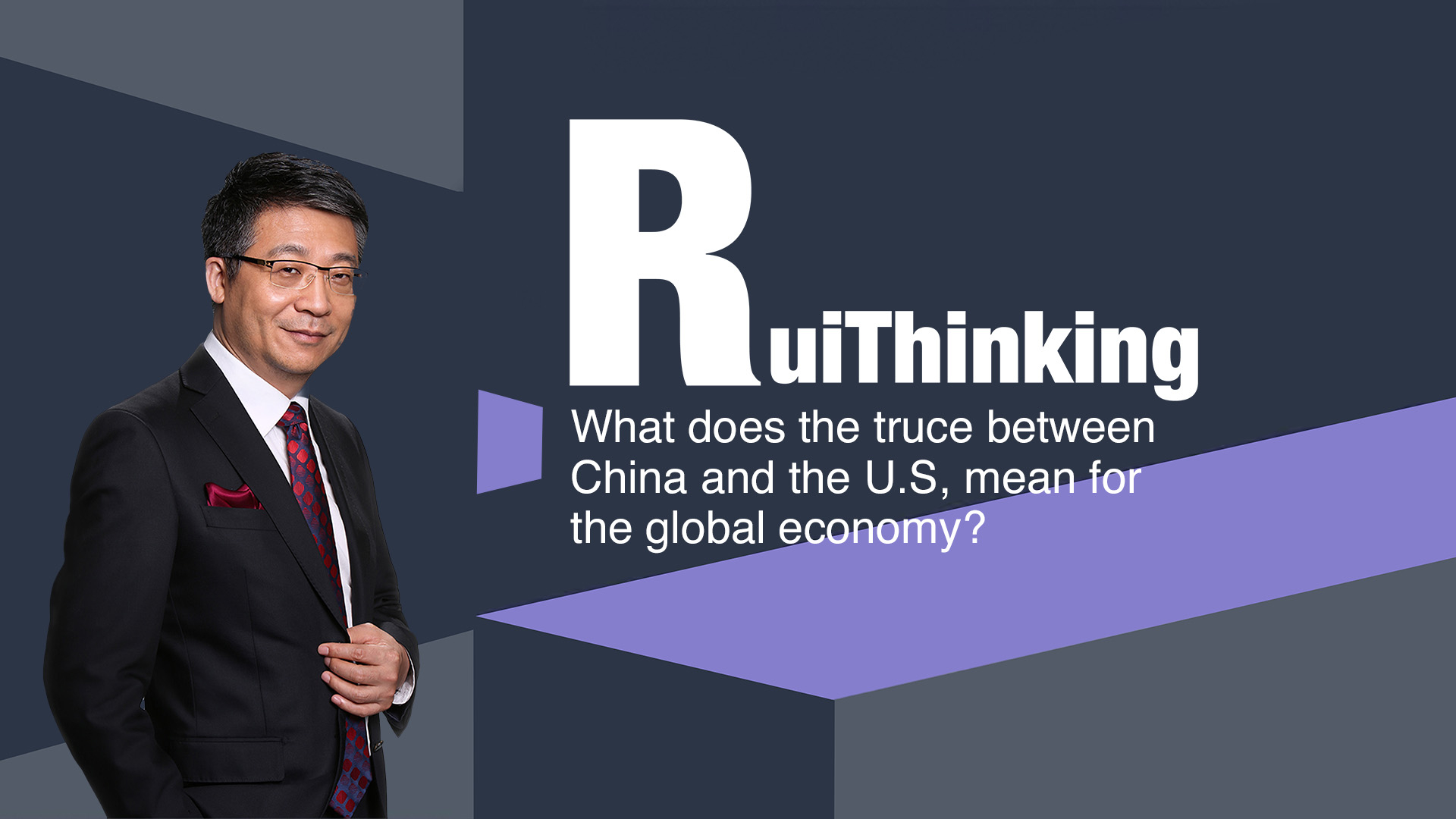
Opinions
15:11, 07-Dec-2018
Rui Thinking: What does the truce between China and the U.S. mean for the global economy?
Updated
14:19, 10-Dec-2018
CGTN's Yang Rui
03:41

Few would compare the truce in Argentina between China and the U.S. to the 38th parallel, but it's definitely a new frontier.
Despite the rhetoric of fury and fire by U.S. President Trump, the two sides decided to postpone the trade war and give peaceful co-evolution a chance on terms still under tough negotiation. What does this ceasefire mean for the WTO and lackluster globalization?
Today I am touring Chengdu, the capital city of Sichuan, the economic, cultural and technological center of southwest China to review the achievements of what China has accomplished over the past 40 years.
What crossed my mind immediately was the essence of local Bashu culture, which desires to be altruistic, inclusive and of public service.
Surrounded by the diversity of the tourist scene, the pace of the local quiet life testifies to the opposite of the classical Romance of Three Kingdoms.
A friend of mine says what made the warlord warfare in Sichuan different from the chaos and upheavals in the coastal areas was the rules of the Longmen Zhen Games.
Players in the game stayed intoxicated with their chess and Majhong pleasures while troops loyal to the individual players were slaughtering each other in battlefields outside the downtown.
The underdog players wouldn't be killed or taken prisoner but they needed to be disarmed and escape from the power struggle seeking shelter in a wild society called Jianghu at large. The turf battles were based on rules.
The broad picture of re-globalization differs from this local story in Chengdu. Ten years ago, Chengdu survived the devastating earthquake on the periphery that killed 90,000 including 10,000 missing.
I try to come to terms with the resilience of Chengdu and was at a loss until a visit to the Wenshu Intellectual Buddha.
Pilgrims in the big compound can benefit from free public services and religious books. This is very different from all that I have experienced on such similar religious occasions.
One vulnerability of democracy arises from populism or mob rule in electoral politics.
Elected politicians thrive on the tyranny of the majority or a platform of nationalism.
China has kept a low profile since President Trump first played with fire on the phone with the Taiwan leader two years ago.
Fortunately, the China-bashing animosity has failed to arouse reprisals or xenophobic sentiments from two generations of Chinese nationals who have benefited significantly from our opening up in 1978.
Neither would China be disarmed since its sizable market has been transformed from an agricultural economy into a digital giant and an important part of the high value-added global chain.
Back to Chengdu, for generations, politicians have believed those who control Bashu in Sichuan would be masters of the future.
Chengdu is the proposed starting point of yet another version of the Belt and Road Initiative.
In my conclusion, what has been achieved on the sidelines of the G20 summit is the early form of a win-win global commerce.
The competition between the two biggest economies will be gaining momentum as Beijing catches up.
(If you want to contribute and have specific expertise, contact us at opinions@cgtn.com.)

SITEMAP
Copyright © 2018 CGTN. Beijing ICP prepared NO.16065310-3
Copyright © 2018 CGTN. Beijing ICP prepared NO.16065310-3